Here are a few thoughts I have about honesty.
Getting what I want starts with knowing what I want. Knowing what I want starts with basic questions and honest answers: What do I want to give? What do I want to receive?
The law of sowing and reaping (or karma, whatever you want to call it) is the practical working out of honesty. What I give is what I receive. The input determines the output. I can’t cheat it. It’s life being honest with me: here’s what you really are, here’s what you’ve really given, here’s the return on your contribution to the universe. It’s coming back to you now, but more of it. The universe provides exponential returns (pressed down, shaken together, running over) so I can’t ignore them. It can be heaven or hell. It doesn’t judge, it just returns: “sow the wind, reap a whirlwind” or sow care, kindness, value, respect, love, directness, freedom, learning, and receive it back, multiplied.
Honesty is the most beautiful treasure in the universe, to me. How real, how valuable, what a gift. Beautiful in all its forms, all its expression: direct, subtle, spoken, shown, with words or face or body or sound or attention or creation or anything.
Honesty is asking to be seen. It can feel like a risk—it is a risk—but it’s also the most important thing I can do because being seen, being real—AH. That’s what we want, what we’re looking for in one way or another.
Home is the place where honesty is easiest, where it is most okay. Home is where I feel safest being seen (or most seen).
Acceptance is the relational working out of honesty. It’s amazing, to be accepted. To be seen and to be accepted no matter how messy I am, no matter how much I spill over the edges or just break the mold completely. That kind of acceptance can come only when I allow myself to be seen. Or, another way to say it: I control the acceptance I can enjoy because I control how much I allow myself to be seen. I control the level of honesty in which I operate.
Facts and honesty are different. You can force or manipulate someone into giving you the facts or “telling you the truth” but you can’t force anyone to be honest with you.
Honesty is a choice you can only make for yourself, internally, freely.
How honest we are with others flows always from how honest we are with ourselves. And how honest we are with ourselves depends mainly on how brave we can be in any given moment.
Being honest with myself means asking the difficult questions. The difficult questions are not the most complex or confusing ones. Often the difficult questions are the simplest ones. The difficult questions are the ones with answers I’m afraid to face. There’s a potential answer I want, or don’t want. Either way, I’m afraid of seeing what the answer is—so I avoid the question.
Avoiding the difficult questions can only work for so long. Avoidance and dishonesty create internal conflict, misalignment, friction. States of tension. Eventually the pressure is too much. Things break. Honesty always forces its way up and out.
Honesty has many forms of expression. It’s in eyes, in face, in body language, in tone, in movement, in the way the eyes move, in where the attention goes. It’s in what we do and what we say and how we say it, and what we don’t say, as well.
Honesty is expressed by me. It also is expressed in what happens to me. I think that I don’t control the situations and circumstances of my day. But I do, by my intention and attention, and by my inattention. My brain filters reality according to my settings: what gets priority, what gets seen, what gets noticed, what is allowed to be real, what is ignored. All of that is up to me.
Honesty is unavoidable. What I am comes out, must always be expressed. I cannot camouflage my values or beliefs for very long.
Honesty is expressed most clearly in the patterns, the long-term patterns and waves and forms of a life.
I want honesty—with myself, with others, with the world, in my work, in play, in learning, in growth, in everything. I want honesty because I value it for its own sake, but more: I want honesty because I value freedom.
Honesty is the price of freedom.
When we venture into honesty, and allow ourselves to be seen, we free ourselves from this need to pretend. We can still pretend, but we don’t have to. We get to drop the pretenses and expectations, which are a prison.
We are all asking a question that’s something like, “Am I okay?” We need the answer to this question so we can move on and do more interesting things than wonder if we are okay. The answer to this question is always Yes. You are okay. I am okay. We are all okay. But we don’t believe this answer until we know it, truly, for ourselves. If I tell you that Yes, you are okay, you might feel okay for a minute. Then you will find a reason not to believe me. “Ah, she doesn’t really know… She doesn’t know about that one thing….”
As long as you are being less than honest, you have a reason to doubt that you are okay. You are not showing up for real in the world. You are showing up half real, half hidden. Or some other ratio. But whatever part is hidden will always make you wonder. It will bring the question up over and over again: Am I okay? Am I okay? Really? What about the part no one knows…? They think I’m okay, but they don’t see that hidden piece. If they knew, they wouldn’t think I’m okay.
That’s why honesty is so important. Honesty is the way to answer that question fully. If you can get honest with yourself, that’s enough. You don’t have to share your secrets with the world (unless you want to) but you do have to face them yourself. All of them. Yes, especially that one—the one you want to ignore. That one most of all.
You don’t have to write overly long confessional essays like I do. Although, if you want to: go for it. We could all do with a little more permission to be honest.





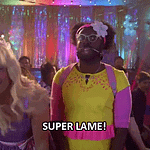
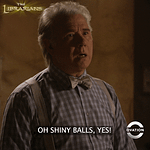
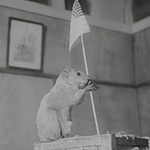

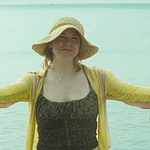
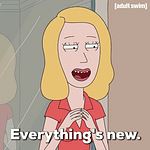
Honesty is the price of freedom